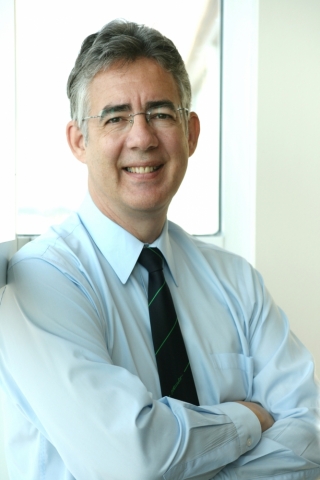
Date:
Location:
Speaker:
In this talk we will discuss issues of control in networks of autonomous and semi-autonomous robots. Control of networked robots typically involves graph theoretic methods combined with nonlinear control for applications such as formation control, rendezvous, or synchronization. Some theoretical issues will be discussed and some results on passivity-based control and control of feedback passive systems will be presented. We will also present some new results on control that guarantees network connectivity and obstacle avoidance.
Bio: Mark W. Spong received the doctorate in systems science and mathematics from Washington University in St. Louis in 1981. Since 2008 he has been Dean of the Erik Jonsson School of Engineering and Computer Science and holder of both the Lars Magnus Ericsson Chair and the Excellence in Education Chair at the University of Texas at Dallas. Prior to joining UT Dallas, he held faculty positions at Lehigh University, Cornell University, and the University of Illinois at Urbana-Champaign.
Dr. Spong is Past President of the IEEE Control Systems Society, a Fellow of both the IEEE and IFAC and has served as Editor-in-Chief of the IEEE Transactions on Control System Technology.
His main research interests are in robotics, mechatronics, and nonlinear control theory. He has authored or coauthored nearly 300 technical articles in control and robotics, five books, and holds one patent. His recent awards include the 2013 Tech Titan Award from the DFW Metroplex Technology Business Council, the 2011 Pioneer Award from the IEEE Robotics and Automation Society, the 2007 IROS Fumio Harashima Award for Innovative Technologies, the IEEE Transactions on Control Systems Technology Outstanding Paper Award, the Automatica Best Paper Award, the Senior Scientist Research Award from the Alexander von Humboldt Foundation, the Distinguished Member Award from the IEEE Control Systems Society, the IEEE Third Millennium Medal, and the John R. Ragazzini Award from the American Automatic Control Council. In addition, he has twice received the O. Hugo Schuck Award from the American Automatic Control Council for work on hybrid control and control of bipedal locomotion.



